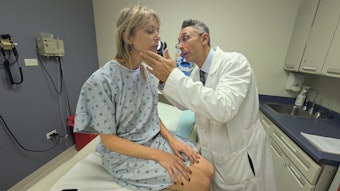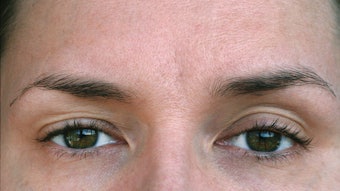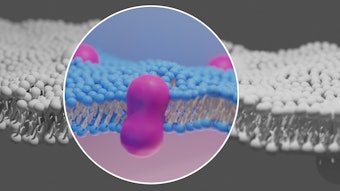
Tummy tucks and liposuction were never meant to take the place of a nutritionally sound diet or exercise program. So Melissa Doft, MD, a New York City plastic surgeon, was surprised and troubled at the number of patients who requested these procedures as a way to instantly drop a few pounds.
What these patients really needed, Dr. Doft realized, was counseling to help them slim down by eating healthier and getting fitter. Then, after they lost the excess weight and learned to keep it off, cosmetic surgery could help with body contouring.
Dr. Doft teamed with local dietitians and personal trainers to develop a lifestyle program in conjunction with her medical practice. Her goal, she says, is to help patients understand that liposuction shouldn’t be viewed as a quick fix, but rather “a springboard to a healthier way of living.”
“It just makes sense,” she says. “My job is as much to treat the patient as to treat the imperfection.”
In creating a lifestyle program, Dr. Doft finds herself sitting on the cusp of an aesthetics evolution: No longer satisfied to deal solely in the superficial, medical and surgical aesthetic professionals are increasingly adding weight-loss, nutritional counseling and other lifestyle components to their cosmetic practices.
Many variations on the aesthetic-lifestyle theme exist: Some practitioners, like Dr. Doft, have cobbled together programs as adjuncts to their medical aesthetic practices, usually by hiring or contracting with dietitians, chefs and coaches. Others sign up with turnkey or franchise weight-loss programs. Some practitioners have created combination practices, with lifestyle, weight loss, lasers and liposuction seamlessly integrated from the get-go.
But regardless of how the program works, the basic goal is the same: happier, healthier patients with superior, longer-lasting aesthetic outcomes.
Image copyright istockphoto.com
[PAGEBREAK]
BUILD A LIFESTYLE TEAM
Dr. Doft created her practice’s lifestyle program using independent contractors. But other practitioners may choose to build an in-house team by adding fitness or nutritional counselors to their staffs. Gregory Laurence, MD, chose this route for his Memphis-area practice, Germantown Aesthetics, which offers laser skin rejuvenation, hair removal, breast enhancement and other cosmetic surgery procedures.
“We brought in a [chef-nutritional] coach to help prospective liposuction patients get close to their ideal body weight before surgery,” says Dr. Laurence. The practice’s nutrition program includes evaluations, supplements, medical and psychological evaluations, dietary coaching and customized treatment plans.
“Patients who are in a better nutritional and metabolic state have better outcomes, so adding a certified chef-nutritional coach was the perfect extension to our current services,” he says. “The program not only reduces risks for our patients, but it ensures [their] higher satisfaction.”
He staffed the program with a physician’s assistant and a combination of full- and part-time employees, in addition to the chef-nutritional coach. “Our kitchen, with a Viking range, is the centerpiece of our facility,” says Dr. Laurence.
The nutrition program is run separately from Dr. Laurence’s medical aesthetic practice, but opportunities abound for cross-promotion: Potential surgical patients are often referred to the lifestyle program. After they lose weight, lifestyle patients are referred to the surgical program.
He introduces the program to patients during the initial consultation. It’s a natural audience, he says: “Clearly, the overweight patient who presents for liposuction is the sweet spot for preoperative nutritional counseling.” He expects the program to grow from word of mouth as satisfied patients refer friends. “Patients recognize that we are interested in their health and their final results, rather than generating a surgical fee,” says Dr. Laurence. “This commitment to overall wellness and patient safety and satisfaction pays huge long-term dividends.”
A COMPREHENSIVE APPROACH
YOLO Medical (www.yolomedical.com), a Canadian company that manufactures and markets medical and aesthetic devices, recently opened its first weight-loss clinic in Ontario, with plans to open additional YOLO clinics throughout southern Ontario, Quebec, British Columbia and eventually the United States. YOLO’s “Lifestyle by Design” program consists of a high-tech/high-touch suite of services, including personalized consultations, lipo-laser treatments, genetic testing, body composition evaluations, and diet and nutrition coaching.
“It’s a comprehensive approach to inch-loss and weight management,” explains YOLO’s chief operating officer, Chris Bleue.
Also on the YOLO menu: body vibration treatments—which, Bleue says, tone muscles and burn calories—sauna sessions and at-home detox supplements. The facilities offer a membership program for patients who want ongoing maintenance treatments.
The lifestyle/education components enhance the results of the aesthetic services and vice versa, Bleue says. “Although we offer all services a la carte, we give everyone a full, free treatment after their initial consultation,” he says. “After they see how powerful the whole process is, nobody wants just pieces.”
[PAGEBREAK]
Internal medicine physician Jan Trobisch, MD, similarly merged lifestyle, weight loss and aesthetics at his Synergy Lifestyle Center in Bakersfield, California. His program includes prescription appetite suppressants, lifestyle counseling, nutritional products, meal replacements, a strict calorie-controlled diet and i-Lipo laser treatments—as well as treatments for drug addiction.
The weight-loss program—which is geared to anyone over the age of 16, with pricing starting at $99/month—is his most popular offering. He runs the program with three full-time employees who are trained to administer the i-Lipo, and he plans to hire a nutritionist and possibly a psychologist.
“As a medical practice, we [can offer] more weight-loss tools than [would be available] through a nutritionist or at a gym,” says Dr. Trobisch. “ And the calorie-restriction diet improves the results of the i-Lipo, which I see as a tool for targeted fat reduction and body shaping.”
Using television, radio and print ads, Dr. Trobisch markets weight loss and i-Lipo together. “We discuss the patient’s options during the first consultation,” says Dr. Trobish. “Once I explain the laser to them, they often get interested and use one of our low-cost trial offers.” Similarly, some patients who are initially interested in the i-Lipo decide to first try the weight-loss plan.
TRY A TURNKEY PROGRAM
Some practitioners may not have the time, funds, employees, energy or expertise to build their own lifestyle or nutrition program. That’s why, rather than reinvent the wheel, some aesthetic professionals prefer partnering with an existing or turnkey program.
The SlimPlate System Bootcamp (www.slimplatesystem.com) is one example of a turnkey program. Myo Nwe, MD, who is board-certified in Internal Medicine and Bariatric Medicine, invented the SlimPlate System and uses it in her own Rock Hill, South Carolina-based practice. It’s been such a success she now helps other physicians set up and run the program.
“Starting a weight-loss program from scratch requires a great deal of time, which may not be feasible for busy doctors,” she says. “But most primary care MDs can start running the Slimplate System Bootcamp from day one.Based on our model, they can add a new revenue stream and diversify their income without giving up their clinical practice and with little overhead.”
[PAGEBREAK]
The highly structured program includes individual counseling, group sessions, prescription medicine when appropriate, physical activity, behavioral modification techniques and weight-loss aids, such as portion-control plates, bowls and cups.
Dr. Nwe developed the SlimPlate System, when she and her partner, Sandeep Grewal, MD, decided to augment their primary care and aesthetic injectables practice with a weight-loss program.
“I tried low-carb diets, Optifast and Medifast. I even tried calorie-restricted frozen meals, like Healthy Choice,” she says. Time and again, patients lost weight and then regained it all.
Determined to find a long-term solution Dr. Nwe, who is also a diplomate with the American Board of Obesity Medicine, created the four-stage SlimPlate program. “Eating less is not the solution for losing weight,” she says. “Eating right is.”
Elizabeth Foley, MD, and Judith Hondo, MD, co-founders of The Vein & Aesthetic Center of Boston, decided to partner with an existing program, rather than create their own. They work with Kinetic Fuel (www.kineticfuel.net), a Boston-based wellness and nutrition company that offers weight-management services, including webinars, presentations, on-site office hours and one-on-one nutritional guidance.
Kinetic Fuel’s program nicely complements Dr. Foley and Dr. Hondo’s menu of noninvasive aesthetic services, including dermal fillers, HydraFacial microdermabrasion, and laser skin resurfacing and hair removal. They added Zerona (www.myzerona.com), a body-contouring laser system, in late 2010.
Zerona requires a serious commitment on the patients’ part, says Dr. Foley. Patients are challenged with avoiding alcohol, hydrating, daily exercise and maintaining a healthy low-fat diet before, during and for at least one week after their Zerona treatment.
“By combining our body-contouring expertise with Kinetic Fuel’s expertise in nutritional counseling, we are offering our patients a better service,” says Dr. Hondo. “We certainly could have trained our staff members to keep the nutritional services in-house, but they would not have had the experience and knowledge that Kinetic Fuel has.”
Drs. Hondo and Foley believe that nutritional counseling will not only appeal to Zerona patients who want to ensure they get the best possible results, but could benefit all their patients. “We hope Kinetic Fuel clients will consider our practice for Zerona or other aesthetic services. Most people who walk through our doors are candidates for most of the services and treatments we provide,” says Dr. Hondo.
“Staying young is more than skin deep,” says Dr. Foley. “Exercise and a healthy diet may not be cutting-edge or sexy, but they are still the true mainstays of a longer, healthier, happier life. Healthy eating is not an option in achieving real change—it is a necessity. Our goal is to help our patients achieve their lifestyle goals for the long run.”
Maryann Hammer is a freelance writer and editor specializing in the medical, beauty and spa industries.











